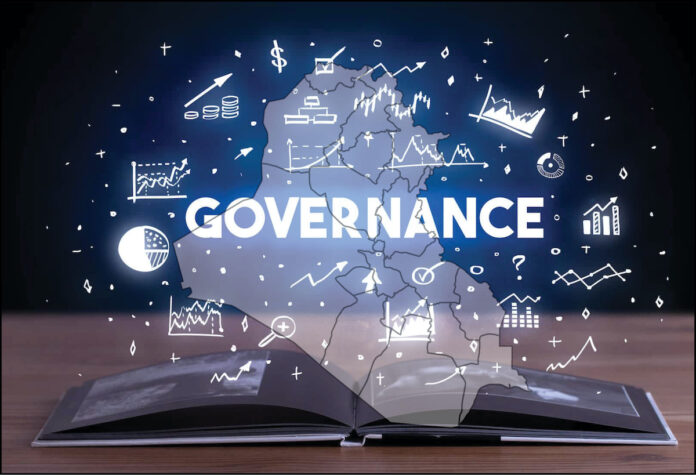Ali Abdul Rahim al-Aboudi: Faculty of political science / Al-Nahrain University
Since the establishment of the Iraqi state in 1921, Iraq has been living in a clear impasse and confusion, except for some stagnant periods, it is living in a political impasse, due to the lack of a clear definition of its political identity, and the establishment of a state of well-established institutions, and it is also living in constant confusion in adopting an economic system that suits its situation and nature, as it was oscillating between socialist economic thought, capitalist thought, and Islamic thought, it was unable to establish a synthesis of new economic thought that corresponds to its potential and nature.
After about (83) years of this confusion and swing, the opportunity arose to rebuild the Iraqi state with its political and economic pillars according to the rules of good governance, after the formation of the first elected Iraqi government in 2005, but unfortunately, this did not happen, and the path was not corrected according to a scientific method and construction, as the situation continued to politicize the economy, subjecting it to.
Accordingly, Iraq began to move away more and more from the consolidation of the rules of good governance in the administration of the state, which resulted in the outcome of mortgaging the country’s economy in all its details for oil rents, and all development plans became a function of oil revenues, which put the country in the circle of the unknown future. Therefore, the importance of this paper lies in identifying the most important reasons that led to the public administration in Iraq moving away from the application of the rules of good governance, identifying obstacles that prevent the application of the principles of good governance in the future, and working to present realistic and practical solutions to the governance of the public administration of the country.
First: the philosophy and concept of good governance
The term good governance, as some writers from international organizations and institutions prefer to call it, began to be used strikingly at the beginning of the current century, and with the many definitions that dealt with good governance, both according to its field and its intellectual point of view, but it pours into the concept and purpose themselves, as it was defined as “governance carried out by elected political entities and administrative cadres committed to developing the resources of society and the progress of citizens and improving their quality of life and well-being, with their consent and through their participation and support” as defined according to a report Arab Human Development was declared by the United Nations in 2002 as “the government that promotes, supports and preserves the well-being of It is based on expanding the capabilities of people, their choices, opportunities, economic, social and political freedoms, and seeks to fully represent all categories of the people, and be accountable to them to ensure the interests of all members of the people”
It is also defined as “the process by which public and private institutions and businesses are managed to ensure human rights, and this is achieved in a corruption-free manner, under the rule of law”
The philosophy of good governance lies in creating a sound environment to ensure the sustainability of human development and provide a decent life for him, by linking three main dimensions and their interaction, namely: the political dimension related to the nature of political power and the legitimacy of its representation, the technical dimension related to the work of Public Administration, its efficiency and effectiveness, the socio-economic dimension related to the nature of the structure of civil society, its vitality and independence from the state, on the one hand, and the nature of public policies in the economic and social fields and their impact on citizens in terms of poverty and quality of life, as well as their relationship with the external economy and other societies, on the other hand.
Namely: good governance is not an end, but a means to achieve greater goals, the most important of which are achieving economic and human development, sustaining state revenues, and creating a stable and comfortable environment for human life, so there are six criteria or indicators by which good governance is measured.










